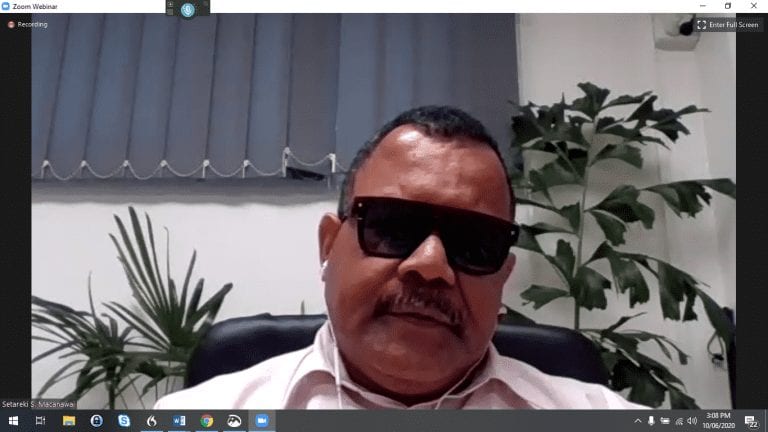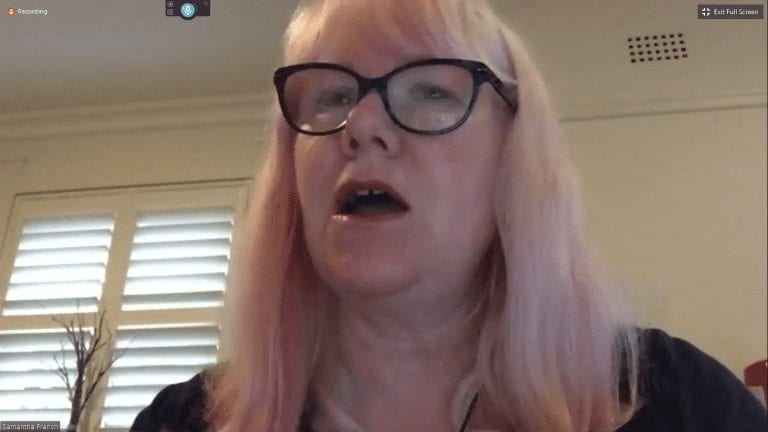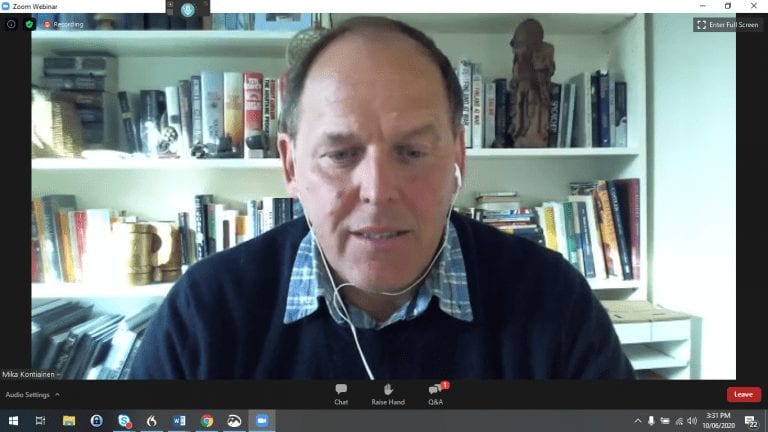COVID-19 and Disability: lessons learned so far
This webinar highlighted some of the key challenges faced by people with disabilities as a result of the COVID-19 pandemic. Panellists also canvassed opportunities for greater inclusion and involvement of people with disabilities in public health responses to current and future crises.

Seta Macanawai, CEO, Pacific Disability Forum (PDF), shared how PDF has been working with local DPOS on how to build their capacity and address local needs in response to COVID-19. He referred to some of the technical assistance and advice provided to core partners during this crisis, available on their website.
He explained that COVID-19 was a new type of emergency that brought to the fore the lack of data on people with disabilities affected, issues in lack of accessibility in public health guidelines on the pandemic and lack of support to people with disabilities to carry out their work. He highlighted that the pandemic was an opportunity to identify gaps in disability inclusion and to come alongside DPOs to help strengthen their messaging. He stressed the economic impact of the pandemic on people with disabilities.

Samantha French, Senior Policy Officer, People with Disabilities Australia (PWDA) spoke from the perspective of her work as part of a DPO and raised the increased vulnerability of marginal populations due to levels of dependence, isolation due to physical distancing measures, lack of continuity and supports for people with disabilities. She made the key point that advocacy needs to be recognised and resourced as an essential service. One of the main challenges is that DPOs are currently not adequately resourced to undertake effective COVID-19 responses. A key opportunity she highlighted was the importance of greater engagement between DPOs and advocates and other organisations.

Mika Kontiainen, Director, Disability Section, DFAT outlined the government’s “Partnerships for Recovery” strategy which acknowledges that pandemics will exacerbate the vulnerability of people who are already marginalised such as women and girls with disabilities. He explained that Australia’s global leadership in disability-inclusive development (DID) is built on a multi-year strategic partnerships with DID actors like CBM Australia, International Disability Alliance, Disability Rights Advocacy Fund, UNPRPD and Pacific Disability Forum. He highlighted that the current pandemic demonstrated the importance of, and opportunity to embed disability inclusion into development programs. He cited the example of a CBM project in Sudan Africa where local DPOs and community-based inclusive development workers are working collaboratively to make COVID-19 public health messages accessible.
We are grateful to Kylie Shae OAM, Founder and CEO of Motivation Australia, for moderating the panel discussion.
The webinar was followed by the launch of the much-anticipated research guidance report, “Research for All: Making Research Inclusive of People with Disabilities,” a guidance document providing advice and practical steps for practitioners, researchers and policymakers on how to realise disability-inclusive research. This Guidance Report was developed through a collaboration between the RDI Network, Nossal Institute for Global Health, University of Melbourne, CBM Australia and the Pacific Disability Forum.
Watch the webinar.
Download the captioning transcript.
